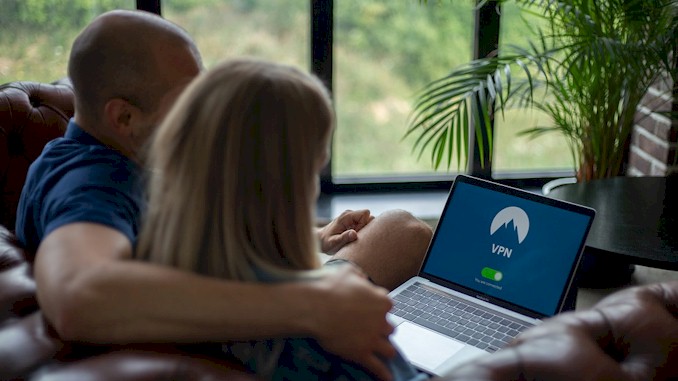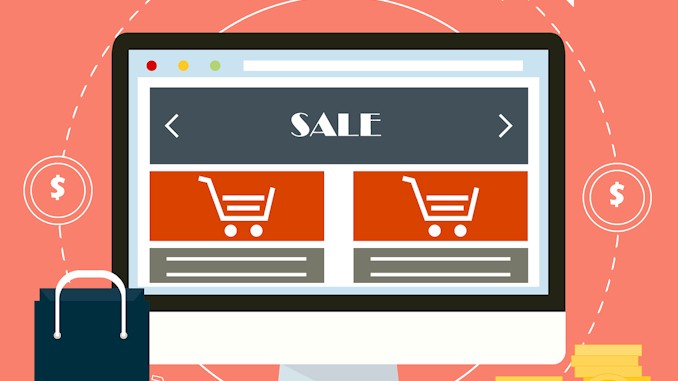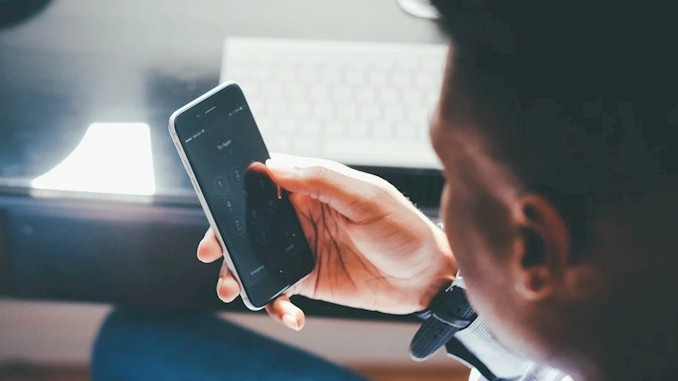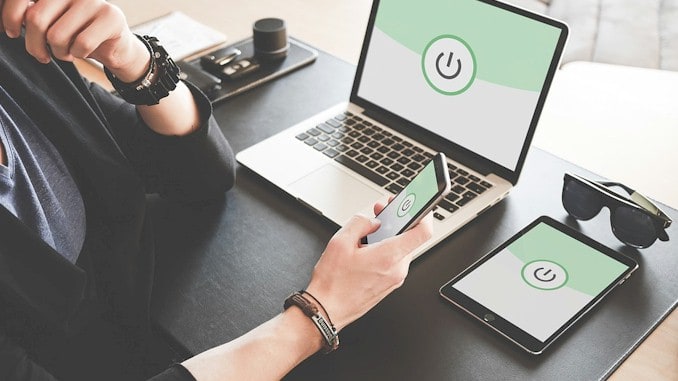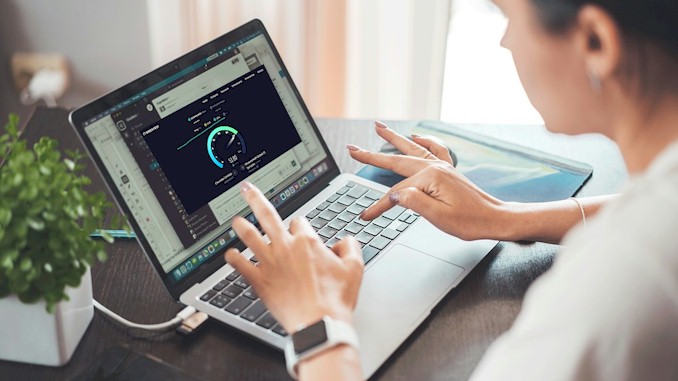Stay Safe Online: When to Use VPN at Home
You might be wondering when to use a VPN at home and why it matters. A VPN, or virtual private network, is a service that encrypts your internet traffic and hides your online identity. It can help you protect your digital privacy and security, stop your ISP from tracking your every move, keep malicious actors at bay, battle against censorship, unblock new types of websites, and save money while shopping online. In this blog post, I will explain how a VPN works and when you should use it at home. Whether you are browsing the web, streaming videos, gaming online, or working remotely, a VPN can make a big difference for your online experience. Read on to find out more!
The general rule of thumb is to use a VPN at home whenever you want to enhance your online privacy and security. A VPN is especially recommended when you connect to unsecured public Wi-Fi networks, access geo-restricted or censored content, or shop online from different locations. However, using a VPN at home is not mandatory and may depend on your personal preferences and needs.
If you want to learn more about how a VPN can benefit you at home, you are in the right place. In the following sections, I will go into more detail about each of the reasons why you should use a VPN at home that I mentioned earlier. I will also give you some tips on how to choose the best VPN for your needs and how to set it up on your devices. By the end of this blog post, you will have a clear understanding of when and how to use a VPN at home. So, let’s get started!
The Benefits of Using a VPN at Home: Why You Should Consider It
You may think that using a VPN at home is unnecessary or complicated, but there are many benefits that you can enjoy by doing so. A VPN, or virtual private network, is a service that creates a secure and encrypted connection between your device and a remote server. By using a VPN at home, you can:
- Mask or change your IP address: Your IP address is a unique identifier that reveals your location and online activity. Some websites may use your IP address to limit your access to certain content, such as streaming services, news sites, or online games. By using a VPN at home, you can hide your real IP address and appear as if you are browsing from another country or region. This way, you can bypass geo-restrictions and access more content online.
- Encrypt your data: When you browse the web without a VPN, your data may be exposed to hackers, ISPs, advertisers, or government agencies who can intercept and monitor your traffic. This can compromise your privacy and security, especially if you are dealing with sensitive information such as passwords, bank details, or personal messages. By using a VPN at home, you can encrypt your data and prevent anyone from snooping on your online activities.
- Safeguard from cyber threats: The internet is full of malicious actors who may try to infect your device with malware, ransomware, phishing scams, or other cyberattacks. These threats can damage your device, steal your data, or extort money from you. By using a VPN at home, you can protect yourself from these cyber threats by blocking malicious websites and ads.
- Work on any network: If you work remotely or frequently travel for work purposes, then using a VPN at home is essential for ensuring productivity and security. A VPN allows you to access your work network securely from anywhere in the world without compromising speed or performance1. You can also use a VPN to access public Wi-Fi networks safely without worrying about hackers or prying eyes.
- Secure multiple devices: Most people use more than one device to connect to the internet, such as laptops, smartphones, tablets, smart TVs, gaming consoles, etc. A VPN allows you to secure all these devices with one subscription. You can install a VPN app on each device or set up a VPN router that covers all the devices connected to it. This way, you can enjoy the benefits of using a VPN at home on every device.
- Remote access: A VPN also enables you to access your home network remotely from anywhere in the world. For example, if you have files, photos, videos, music, etc., stored on your home computer or NAS drive, then you can use a VPN to access them securely over the internet. You can also use a VPN to control smart devices in your home, such as cameras, thermostats, lights, etc. This way, you can stay connected to your home even when you’re away.
- Bypass government surveillance: Some countries have strict internet censorship laws that limit what people can see and do online. These laws may block certain websites, apps, social media platforms, etc. They may also monitor, track and record people’s online activities. By using a VPN at home, you can bypass government surveillance and censorship by connecting to servers in other countries where internet freedom is respected. You can also avoid being targeted by authorities for expressing dissenting opinions online.
- Save money while shopping online: Another benefit of using a VPN at home is that it can help you save money while shopping online. Some online retailers may offer different prices for the same products depending on where you’re located. For example, flights, hotels, car rentals, etc., may be cheaper in some countries than others. By using a VPN at home, you can change your location and compare prices across different regions. You may find better deals, discounts, coupons, etc., by doing so.
As you can see, there are many benefits of using a VPN at home that make it worth considering. Whether you’re concerned about privacy, security, entertainment, work convenience, freedom, or savings, there’s something for everyone with a VPN. In the section below, I’ll show how easy it is to choose a setup and use one.
Common Use Cases for VPNs at Home: When You Should Use One
A VPN (Virtual Private Network) is a service that creates a secure and encrypted connection between your device and a remote server. A VPN can help you protect your online privacy, security, and freedom by hiding your IP address, encrypting your data, and bypassing geo-restrictions.
But do you need a VPN at home? The answer depends on what you do online and how much you value your privacy. Here are some everyday use cases for VPNs at home that might convince you to use one:
- Hide Your Online Activity from Your ISP Your internet service provider (ISP) can see everything you do online, including your searches, downloads, emails, and more. They can also sell your anonymized data to third parties for advertising or other purposes. If you don’t want your ISP to track your online activity or share it with others, you should use a VPN at home. A VPN will mask your IP address and encrypt your traffic so that your ISP can’t see what you’re doing or where you’re going.
- Protect Against Hackers, and Cyberattacks Hackers and cybercriminals can exploit vulnerabilities in your network or devices to steal your personal information, such as passwords, credit card numbers, bank accounts, etc. They can also infect your devices with malware or ransomware that can damage or lock them until you pay a ransom. If you want to protect yourself against hackers and cyberattacks at home, you should use a VPN. A VPN will create a secure tunnel between your device and the VPN server so that hackers can’t intercept or tamper with your data.
- Bypass Geo-Restrictions and Censorship Some websites and services may be blocked or restricted in certain regions due to licensing agreements or government regulations. For example, Netflix offers different content libraries depending on where you are located. Similarly, some countries may censor or block access to certain websites or apps that they deem inappropriate or harmful. If you want to bypass geo-restrictions and censorship at home, you should use a VPN. A VPN will allow you to change your virtual location by connecting to a server in another country where the website or service is available.
- Access Streaming Content from Other Countries One of the most popular reasons to use a VPN at home is to access streaming content from other countries. For example, if you want to watch BBC iPlayer from outside the UK, Hulu from outside the US, or Disney+ from anywhere in the world. Streaming platforms often use geo-blocking techniques to prevent users from accessing content that they don’t have the rights to distribute in their region. If you want to access streaming content from other countries at home, you should use a VPN. A VPN will help you spoof your location by connecting to a server in the country where the streaming platform is available.
- Stay Protected on Public Wi-Fi Another reason to use a VPN at home is to stay protected on public Wi-Fi networks. Public Wi-Fi networks are often unsecured and vulnerable to hackers who can spy on your online activity or inject malicious code into your device. Even if the network is secured with a password, it doesn’t mean that it’s safe. Anyone who has access to the network can potentially see what others are doing on it. If you want to stay protected on public Wi-Fi networks at home, you should use a VPN. A VPN will encrypt your data so that no one else on the network can see it or interfere with it.
- Safeguard Your Personal Data Your personal data is valuable and sensitive information that can be used for various purposes by different entities. For example, your browsing history can reveal your interests, preferences, habits, and behavior; your location data can reveal where you live, work, or travel; your financial data can reveal how much money you have, spend, or owe; and so on. If you want to safeguard your personal data at home, you should use a VPN. A VPN will hide your IP address so that websites cannot track or identify you and encrypt your data so that hackers cannot steal or misuse it.
How to Choose the Right VPN Provider: Key Factors to Consider
A VPN (Virtual Private Network) is a service that encrypts your internet traffic and protects your online identity. VPNs can help you access geo-restricted content, bypass censorship, and secure your data from hackers and snoopers.
But not all VPNs are created equal. Some may offer better features, performance, and privacy than others. How do you choose the right VPN provider for your needs? Here are some key factors to consider:
- Logging policy: The logging policy of a VPN provider determines what kind of information they collect and store about your online activity. Some VPNs may keep logs of your IP address, browsing history, connection time, bandwidth usage, or even personal details. These logs can be accessed by third parties such as governments, ISPs, or hackers if they request or hack into the VPN servers. Therefore, you should look for a VPN provider that has a strict no-logs policy, meaning they do not record or store any of your online activity.
- Encryption level: Encryption is the process of scrambling your data so that only you and the intended recipient can read it. The level of encryption depends on the type and strength of the encryption algorithm used by the VPN provider. The higher the level of encryption, the more secure your data is from prying eyes. However, higher encryption may also affect your speed and performance. You should look for a VPN provider that offers strong encryption, such as AES-256, which is considered one of the most secure encryption standards available.
- Server network: The server network of a VPN provider refers to how many servers they have and where they are located. The more servers a VPN provider has, the more options you have to connect to different countries and regions. This can help you access geo-restricted content such as Netflix libraries or BBC iPlayer. The location of the servers also matters for your privacy and speed. You should look for a VPN provider that has servers in countries that respect your right to privacy and are close to your physical location for faster connections.
- Speed: Speed is one of the most important factors when choosing a VPN provider. A slow VPN can ruin your online experience by causing buffering, lagging, or disconnecting issues. Speed depends on various factors such as encryption level, server location, server load, protocol type, etc. You should look for a VPN provider that offers fast and consistent speeds across their server network. You can test their speed by using online tools such as speedtest.net or fast.com before signing up.
- Features: Features are additional benefits that some VPN providers offer to enhance your online experience. Some common features include kill switch1, which automatically disconnects you from the internet if your VPN connection drops; split tunneling, which allows you to choose which apps use the VPN and which don’t; DNS leak protection, which prevents your DNS requests from being exposed to third parties; etc. You should look for a VPN provider that offers features that suit your needs and preferences.
These are some of the key factors to consider when choosing a VPN provider. However, there may be other factors depending on your specific use case, such as price, customer support, compatibility with devices, etc.
The best way to find out if a VPN provider is right for you is to try it out yourself before committing to a long-term subscription plan.
Setting Up a VPN at Home: A Step-by-Step Guide
Setting up a VPN at home may seem like a daunting task, but it’s actually easier than you might think. In this section, we’ll walk you through the process step-by-step, from choosing a VPN provider to configuring your router or device. Here’s what you need to know, and you can reference to this post on this website for details:
- Choose a VPN Provider The first step in setting up a VPN at home is choosing a VPN provider that meets your needs. Look for a provider that offers strong encryption, a wide range of server locations, and a user-friendly interface. Popular options include NordVPN, ExpressVPN, and Surfshark. Once you’ve chosen a provider, sign up for a plan and download the software to your device.
- Configure Your Router To use a VPN at home, you’ll need to configure your router to connect to the VPN provider. This will allow all devices connected to your home network to use the VPN. To do this, log in to your router’s admin panel and look for the VPN settings. Enter your VPN provider’s server address and login credentials, and save the settings. Not all routers support VPN configuration, so be sure to check your router’s documentation to see if it’s possible.
- Connect Your Devices Once your router is configured, you can connect your devices to the VPN. Most VPN providers offer apps for Windows, Mac, iOS, and Android, so download the app for each device you want to connect. Enter your login credentials, choose a server location, and connect to the VPN. You can also connect devices manually by entering the VPN provider’s server address and login credentials into the device’s network settings.
- Test Your Connection After you’ve connected to the VPN, it’s important to test your connection to ensure that it’s working properly. Visit a website that shows your IP address, and check that it’s different from your normal IP address. You can also test your connection speed to make sure it’s not significantly slower with the VPN connected.
- Troubleshoot Any Issues If you’re having trouble connecting to the VPN, there are a few things you can try. First, make sure you’re using the correct login credentials and server address. If that doesn’t work, try connecting to a different server location. You can also try restarting your router and device, or contacting your VPN provider’s customer support for assistance.
- Enjoy Your Secure Connection Once you’ve successfully set up your VPN at home, you can enjoy a more secure and private internet experience. Your online activities will be encrypted and your IP address will be hidden, protecting you from prying eyes and potential cyber threats.
Frequently Asked Questions About Using VPNs at Home: What You Need to Know
If you’re considering using a VPN at home, you may have some questions about how they work and how to get the most out of them. In this section, we’ll answer some of the most common questions about using VPNs at home.
- What is a VPN and how does it work? A VPN, or virtual private network, is a tool that encrypts your internet connection and routes it through a private server. This masks your IP address and encrypts your online activities, making it more difficult for others to track or intercept your online communications.
- Why should I use a VPN at home? Using a VPN at home can provide several benefits, including:
- Increased security: VPNs encrypt your internet traffic, making it more difficult for hackers or snoops to intercept your data.
- Access to geo-restricted content: VPNs can allow you to access content that may be restricted in your region.
- Protection from online surveillance: VPNs can help protect your privacy by hiding your online activities from your ISP and other third-party trackers.
- Improved internet speed: In some cases, using a VPN can actually improve your internet speed by reducing throttling or congestion.
- Can I use a VPN on all my devices? Yes, you can use a VPN on all your devices, including computers, smartphones, tablets, and smart TVs. Most VPN providers offer apps for a wide range of devices, and many also allow you to manually configure the VPN on devices that don’t have a dedicated app.
- How do I choose a VPN provider? When choosing a VPN provider, consider factors such as:
- Security: Look for a provider that offers strong encryption and has a no-logging policy.
- Speed: Check reviews and performance tests to ensure the provider doesn’t slow down your internet speed.
- Server locations: Make sure the provider has servers in the locations you need.
- User-friendliness: Choose a provider with a user-friendly interface and easy-to-use apps.
- Are there any downsides to using a VPN? While VPNs can provide many benefits, there are a few potential downsides to consider, including:
- Slower internet speeds: Using a VPN can sometimes slow down your internet speed, especially if you’re connecting to a server in a distant location.
- Cost: While there are some free VPNs available, most reputable providers require a monthly or yearly subscription fee.
- Compatibility issues: Some devices or applications may not be compatible with VPNs.
- Is using a VPN legal? In most countries, using a VPN is legal. However, there are some exceptions, such as countries that have banned VPNs or restrict their use. It’s important to check the laws in your country before using a VPN. Additionally, while using a VPN is legal, using it to engage in illegal activities is not.

